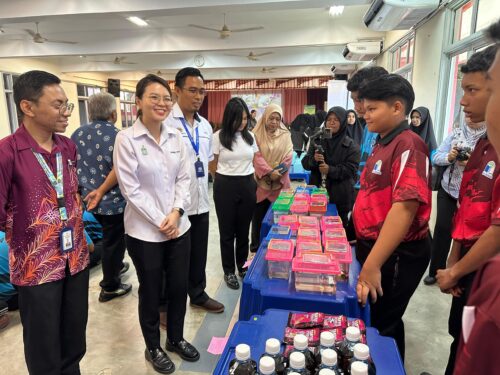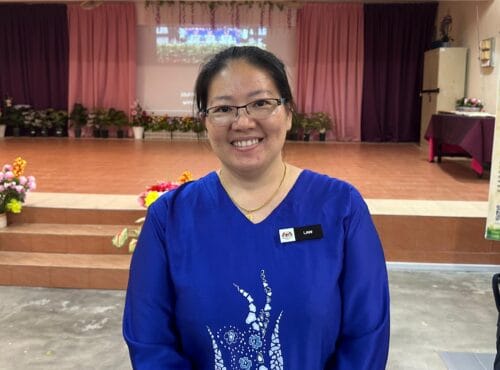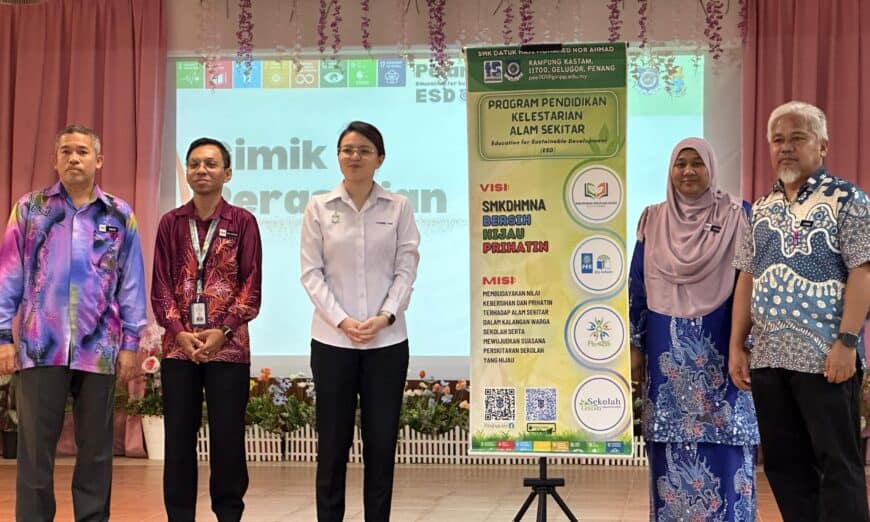SMK Datuk Haji Mohamed Nor Ahmad in Kampung Kastam has received a RM7,000 boost to its environmental education initiatives, as announced by Seri Delima assemblyman Connie Tan.
The announcement was made during the launch of the school’s Education for Sustainable Development (ESD) 2025 programme, which aims to promote sustainability and hands-on environmental learning among students.
In her speech, Tan said the allocation includes RM2,000 she had committed earlier during a site visit to the school’s vermicomposting initiative on 24 May.
“An additional RM5,000 contribution was secured from Tenaga Nasional Berhad (TNB) under its corporate social responsibility (CSR) programme.

“I would like to express my sincere thanks to TNB general manager Encik Hizami for his strong support, which enables the school’s environmental efforts to expand further.
“These funds will be used to enhance student participation in sustainability activities such as vermicomposting, gardening, and eco-innovation.
“These initiatives are part of the school’s broader mission to translate classroom sustainability lessons into real-world action,” she said.
Tan praised SMK Datuk Haji Mohamed Nor Ahmad as a model school in Penang for championing sustainable education, aligning with both national education goals and the Sustainable Development Goals (SDGs).
“Education is not only about academic excellence, but it’s about shaping future citizens with environmental consciousness and social responsibility,” she said.
She also called for greater collaboration among schools, parents, government agencies, non-governmental organisations (NGOs), and the broader community to ensure the long-term impact of environmental programmes.
The school’s efforts in environmental education have been spearheaded by an innovative vermicomposting project, coordinated by its person-in-charge, Law Yee Chen.
She said the initiative began with three simple composting pots containing 100 grammes of worms each, set up at a cost of only RM20.
Over time, the project grew through partnerships with Universiti Sains Malaysia (USM) and community collaborators, who contributed additional worms and provided training.
“We did not purchase expensive worm houses, as we made homemade materials.
“Now, we have 10 composting units, and a dedicated team of students monitors the worms daily and documents the progress,” she said.
The school’s project has gained national recognition, having been selected as one of the top 30 finalists in the Toyota Eco Youth competition.

Law added that the students also conducted public awareness campaigns, including one at Taman Tun Sardon, to educate the community about composting and sustainable waste management.
“The programme not only improved students’ environmental literacy, but also strengthened their communication, project management, and problem-solving skills,” she said.
Story by Edmund Lee
Pix by Muhamad Amir Irsyad Omar

